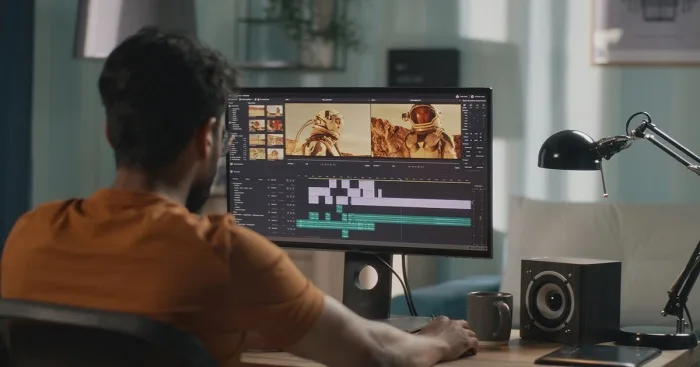
The Rise of Video Editing: How to Make Money as a Video Editor
The profession of video editing has evolved significantly over the years, transforming from a niche craft into a mainstream career option, especially in the digital age. As technology has advanced, so too have the tools and platforms available to video editors, making this an accessible and lucrative field for many. Video editing as a profession involves manipulating and rearranging video shots to create a new work, which could be a film, a television show, a commercial, or a web series. This profession has its roots in the early days of cinema but has dramatically evolved with the advent of digital technology. Initially, video editing was a manual process, involving cutting and splicing physical film reels. However, with the introduction of digital non-linear editing systems in the 1980s and 1990s, the profession underwent a revolution, allowing for more complex and creative editing possibilities. Today, video editors use sophisticated software like Adobe Premiere Pro, Final Cut Pro, and DaVinci Resolve, which offer a wide range of tools for enhancing visual storytelling.
What Qualities or Knowledge Do You Need to Work Successfully in This Field?
The qualities and knowledge required to be a successful video editor go beyond mere technical skills. A keen eye for detail, creativity, and a strong sense of timing and narrative structure are essential. Video editors must be proficient in using editing software and have a good understanding of various video formats, codecs, and editing techniques. They should also be able to work under tight deadlines and manage their time effectively. Additionally, knowledge of color correction, sound editing, and special effects can be a significant advantage. Video editors often collaborate closely with directors, producers, and other creatives, so strong communication skills and the ability to take and implement feedback are crucial. A good video editor also stays updated with the latest industry trends and continuously hones their skills through practice and ongoing learning. Whether working on a small independent project or a big-budget production, the ability to tell a compelling story through editing is what sets a great video editor apart from the rest.
How In-Demand is the Profession?
The demand for video editors has surged in recent years, driven by the explosion of digital content across various platforms. From YouTube to Netflix, and from corporate promotional videos to social media content, the need for skilled video editors is ubiquitous. The proliferation of online video content has created numerous opportunities for video editors, making it one of the most sought-after professions in the media and entertainment industry. This demand is not just limited to traditional media outlets but extends to new media companies, advertising agencies, and even businesses looking to create in-house marketing videos. As video continues to dominate the digital landscape, the demand for skilled video editors is expected to grow, offering a promising career path with numerous opportunities for specialization and advancement.

Are There Any Job Search Platforms for This Profession?
Several job search platforms cater specifically to video editors, providing a plethora of opportunities across different industries. Websites like Upwork and Fiverr offer freelance opportunities, allowing video editors to work on various projects and build their portfolios. LinkedIn is another valuable resource, where professionals can network, apply for full-time positions, and showcase their work. Additionally, industry-specific job boards such as ProductionHUB and Mandy.com list job openings for video editors in film, television, and digital media. These platforms often feature job postings from production companies, advertising agencies, and media houses looking for both full-time and freelance video editors. Keeping an updated profile on these platforms and actively applying for jobs can significantly enhance one’s chances of finding suitable employment in this competitive field.
How Promising is This Career?
The future of video editing looks incredibly promising, with advancements in technology continuing to expand the possibilities of what can be achieved. Artificial intelligence and machine learning are beginning to play a role in video editing, automating repetitive tasks and allowing editors to focus more on the creative aspects of their work. Virtual and augmented reality are also creating new opportunities for video editors, as these technologies require a new form of storytelling and editing techniques. Moreover, the increasing consumption of video content on mobile devices and social media platforms is driving the demand for short-form video content, which requires a different set of editing skills. As the digital landscape continues to evolve, video editors who stay adaptable and embrace new technologies will find themselves at the forefront of the industry, ready to take on exciting and innovative projects.
